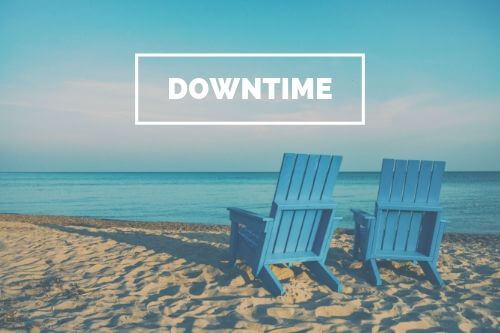
YouTube / iTunes / Spotify / Radio Public / Pocket Casts / Google Podcasts / Breaker / Overcast
Listen to ArtisanEnglish.jp posts & lesson intros here.
Word of the Day: Downtime
It’s the Labour Day holiday weekend in North America.
What better time to discuss the benefits of downtime than on what is traditionally the last long weekend of the summer?
Downtime is an opportunity to stop working, relax, and not do much.
Sometimes, downtime is our choice, and sometimes, it is not.
The Labour Day weekend is, for most, the last opportunity of the summer to hang out with friends and family, BBQ, relax, and not do very much at all.
It’s a wonderful chance to have a little downtime before we begin the long, hard dash to Christmas.
Yes, I know there’s Canadian Thanksgiving in October, and in November, the Americans have theirs, but to be honest, Thanksgiving is not a very relaxing holiday.
It involves a lot of travelling, cooking and eating, followed by a rush to get back to regular life again.
From my experience, Thanksgiving had never been an opportunity for downtime.
Many Canadians are spending this weekend at their cottages, camping in national parks or watching their favourite Canadian football team play in the Labour Day Classic.
Before you begin to wonder, Canadian football is played in the summer.
Yes, Americans play in the winter, and they think it’s cold.
Can you imagine freezing your butt off in an open-air stadium in the middle of December in Alberta, Canada, when temperatures are frigid?
Neither can Canadians.
That’s why we take our downtime in the summer when we can enjoy the great outdoors in a national park or football stadium with 30,000 of our closest friends.
Everyone needs to get away from work once in a while to have some downtime.
Flesch-Kincaid Readability Test
This post is understandable by someone with at least an 8th-grade education (age 13 – 14).
On the Flesch-Kincaid reading-ease test, this post scores 61.
The higher the score on a scale of 0 – 100, the easier the passage is to read.

